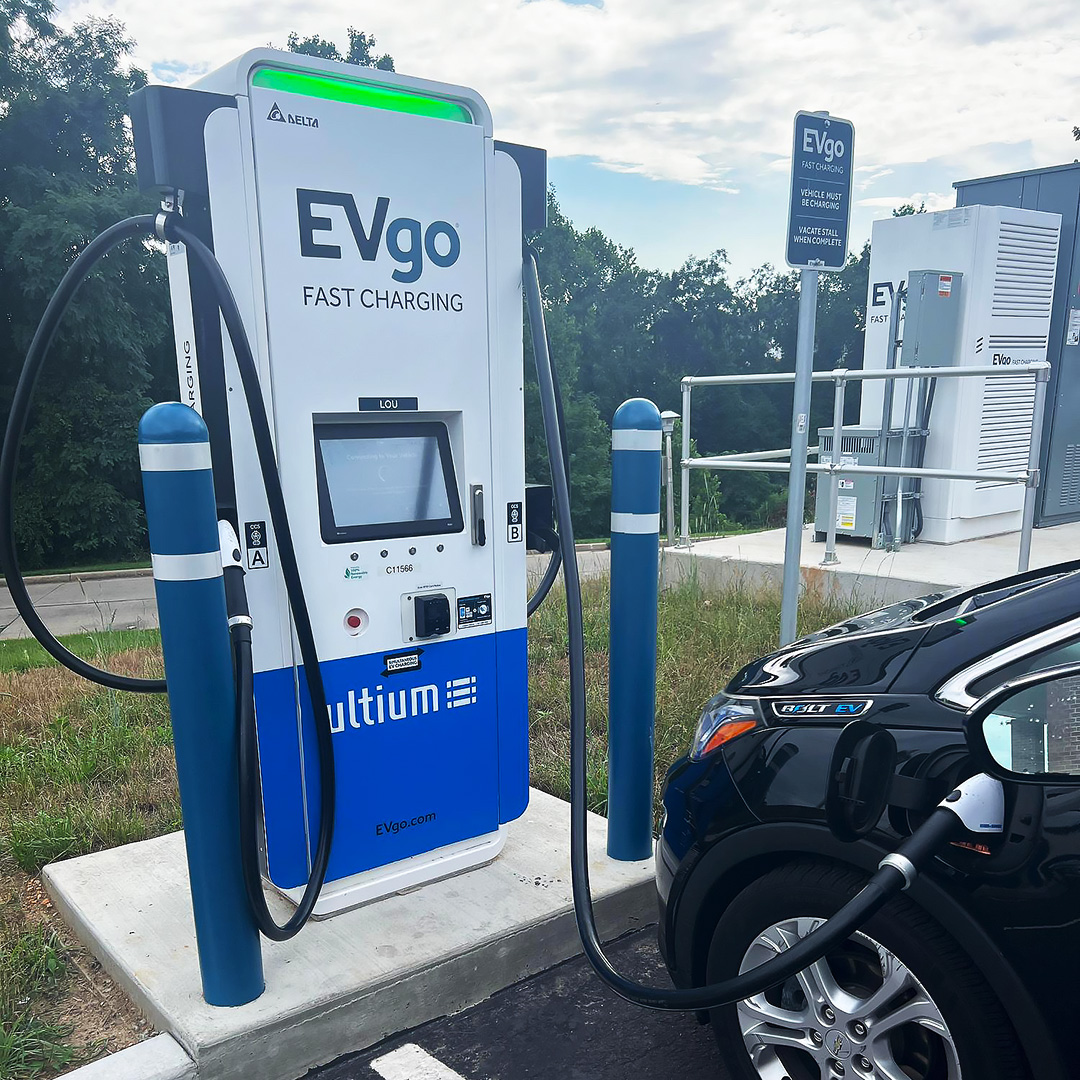Which Charger Is Right for Me?
With more manufacturers releasing new electric vehicle (EV) models that offer increased battery capabilities, and a wide range of charger power levels, you may be wondering which charger is right for your vehicle. We’ve written about the number of factors that can impact your charging speed, and one of the most important factors is the car’s maximum rate of charge and specific charging curve. If that sounds like technical lingo, don’t worry, we’ve got you covered with a glossary of terms in our EV 101 series. To help drivers power up as quickly as possible given their vehicle’s battery specifications, EVgo has created a handy reference you can use to figure out which EV models will get the best charging performance at different charger power levels.
Our list includes every EV model currently on the market, grouped by power level, including brand new and older and/or discontinued models, so you can browse easily. Check out the lists below to find the make and model of the EV you drive to find your charger match. Keep in mind that maximum charge rates are just that—maximums—and most vehicles only charge at their “peak” kW for a short while before tapering off as the battery fills up (that’s the charge curve we referenced above).
These models have max charge rates of up to 59kW, so a 50kW charger will get the job done:
BMW i3
Chevy Bolt
Chevy Bolt EUV
Chevy Spark EV
Ford Focus Electric
Harley Davidson LiveWire Motorcycle
Harley Davidson LiveWire One Motorcycle
Honda Clarity
Kia Soul EV
Madza MX-30
Mini Cooper SE Electric
Mini Cooper SE Electric Hardtop
Nissan LEAF
Volkswagen E-Golf
Tesla Model 3, S, S Plaid, X and Y*
*When using a CHAdeMO adapter or integrated Tesla connector at EVgo station.
These models have max charge rates of 60-199kW, so look for a 100kW or 200kW charger:
Audi e-tron
Audi Q4 e-tron
BMW i7
BMW iX
Cadillac LYRIQ
Ford F-150 Lightning
Ford F-150 Lightning (Pro Edition)
Ford Mustang Mach-E
Hyundai Ioniq EV
Hyundai Kona EV
Jaguar I-pace
Kia Niro EV
Lordstown Endurance
Mercedes-Benz EQB
Mercedes-Benz EQE
Nissan ARIYA
Nissan LEAF Plus
Polestar 2
Subaru Solterra
Toyota bZ4X
VinFast VF8
Volkswagen ID.4
Volvo C40 Recharge
Volvo XC40 Recharge
These models have max charge rates of 200-350+kW—the fastest on the market—so look for 350kW high-power chargers:
Audi e-tron GT
BMW i4
Genesis GV60
Genesis GV70
Genesis G80
GMC Hummer EV
Hyundai Ioniq 5
Hyundai Ioniq 6
Kia EV6
Lucid Air Dream Edition
Lucid Air Touring
Mercedes-Benz EQS
Porsche Taycan
Rivian R1S
Rivian R1T
Tesla Model 3, S, S Plaid, X and Y*
*When using a CCS Combo 1 adapter made by Tesla for compatible Tesla models.
Can I use a higher-powered charger than my vehicle’s maximum charging capability?
Yes. If your EV has a battery with a lower kW limit, you can plug in at a higher-powered charger, but it won’t charge your vehicle any faster. This is because the charging speed is dictated by your battery’s specs, not the charger, so you can’t get any more power than your battery will accept. For a particularly busy station, if you know your EV has a smaller battery and lower max charging rate, it’s generally considered good etiquette not to occupy a higher-powered charger than you need as you may be preventing a vehicle that accepts a faster, higher-powered charge from using that charger.

Can I use a lower-powered charger than my vehicle’s maximum charging capability?
Of course! In fact, this option makes great sense when you’re not in a hurry to charge or have things to do near a convenient charger, like running errands, dining at a restaurant or taking a walk while you’re plugged in. Whether your EV has a higher or lower peak DC charge rate, a lower-power charger is a great option if you might be away from your car for a while.
If you take away one thing from this post, it’s that as much as we love our 350kW high-power chargers, if the EV you drive has a smaller battery or lower charge rate, plugging into one won’t charge your car any faster than a lower-powered charger. And given the charging curves automakers have given these vehicles, sometimes the difference between using a 150kW and a 350kW can be just a few minutes. Regardless, we’re working hard every day to deploy more high-power chargers where you need them, and even more high-power-capable vehicles are coming to market this year and next!
We hope this post helps you find the information you need to choose the optimum charger for your vehicle. If you want to review some quick facts about current EV models and range, check out our website. If you have any questions about how to charge on our network, send us an email at support@evgo.com.
Source: https://support.fastned.nl/hc/en-gb/sections/4428932764573-Vehicles
Source: https://www.caranddriver.com/features/a40929408/ev-charging-chart-rates/
